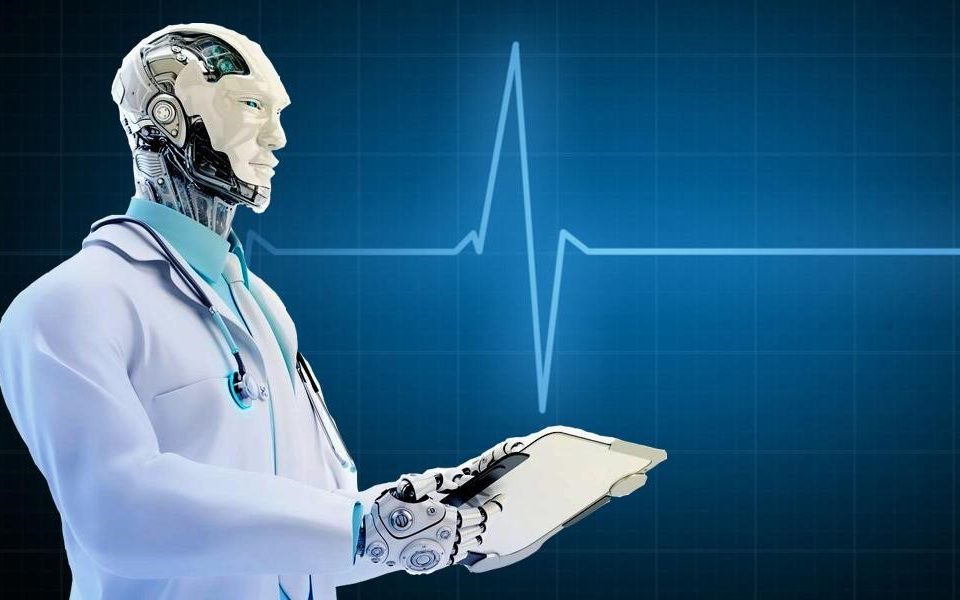
AI in Healthcare: Revolutionizing Disease Prediction and Early Detection
Artificial intelligence is revolutionizing healthcare by predicting diseases before symptoms appear. From detecting early signs of heart failure through ECG analysis to identifying cancer in medical imaging up to a year earlier than human radiologists, AI systems are transforming medicine from reactive to proactive. By analyzing patterns across genetic information, electronic health records, and biometric data, these technologies offer unprecedented opportunities for early intervention and improved patient outcomes. As these systems continue to evolve, we may be entering an era where many serious conditions can be addressed before they manifest—potentially adding years of healthy life for millions worldwide.
In the rapidly evolving landscape of healthcare technology, artificial intelligence (AI) has emerged as a powerful tool for predicting and detecting diseases before symptoms appear. This breakthrough approach is transforming patient care by enabling earlier interventions, improving treatment outcomes, and potentially saving countless lives.
The Power of Predictive Analytics in Medicine
Traditional medical diagnoses typically occur after symptoms manifest, often when diseases have already progressed. AI is changing this paradigm through:
- Pattern recognition: AI algorithms can identify subtle patterns in medical data that human clinicians might miss
- Integration of diverse datasets: Combining genetic information, electronic health records, lifestyle data, and medical imaging
- Continuous learning: Systems that improve over time as they analyze more patient cases
These capabilities allow AI to flag potential health issues months or even years before conventional diagnostic methods would detect them.
Real-World Applications Making an Impact
Cardiovascular Disease Prediction
Researchers at the Mayo Clinic have developed AI models that can analyze standard ECGs to detect asymptomatic left ventricular dysfunction – a precursor to heart failure. Their algorithm identifies subtle electrical patterns that indicate early cardiac problems, providing a window for intervention before heart damage occurs.
Cancer Detection
Google Health's deep learning system has demonstrated remarkable ability to detect breast cancer in mammograms, reducing false negatives by 9.4% compared to human radiologists. In lung cancer, AI tools have shown capability to identify malignant nodules up to a year earlier than standard practices.
Neurodegenerative Disease Early Warning
AI systems are now capable of detecting subtle cognitive changes and biomarkers that may indicate early-stage Alzheimer's or Parkinson's disease. These tools analyze speech patterns, fine motor control, and even retinal scans to identify neurological diseases before significant symptoms develop.
Diabetes Risk Assessment
Machine learning models can now predict Type 2 diabetes development with impressive accuracy by analyzing routine blood work and patient data. One study found AI could predict diabetes onset up to five years in advance with 85% accuracy.
Challenges and Ethical Considerations
Despite the promise, several challenges remain:
- Data privacy concerns: Balancing the need for comprehensive datasets with patient privacy
- Algorithm bias: Ensuring AI systems perform equally well across diverse populations
- Integration with clinical workflows: Creating systems that enhance rather than complicate healthcare delivery
- Regulatory frameworks: Developing appropriate oversight for these rapidly evolving technologies
The Future of AI in Preventive Medicine
As AI technology continues to advance, we can expect even more sophisticated predictive capabilities. Emerging trends include:
- Wearable integration: AI systems that continuously monitor biometric data from smartwatches and other devices
- Personalized risk profiling: Customized disease prediction based on individual genetic and lifestyle factors
- Preventive treatment planning: AI-guided interventions tailored to address specific disease risks
- Democratized healthcare access: Bringing advanced diagnostic capabilities to underserved communities
Conclusion
The integration of AI into predictive healthcare represents one of the most promising developments in modern medicine. By shifting the focus from treatment to prevention, these technologies offer the potential to fundamentally transform healthcare delivery, making it more proactive, personalized, and effective.
As AI systems become more sophisticated and widely implemented, we may be entering an era where many diseases can be addressed before they manifest – potentially adding years of healthy life for millions of people worldwide.
This article represents the current state of AI in healthcare as of March 2025. The field continues to evolve rapidly with new research and applications emerging regularly.




